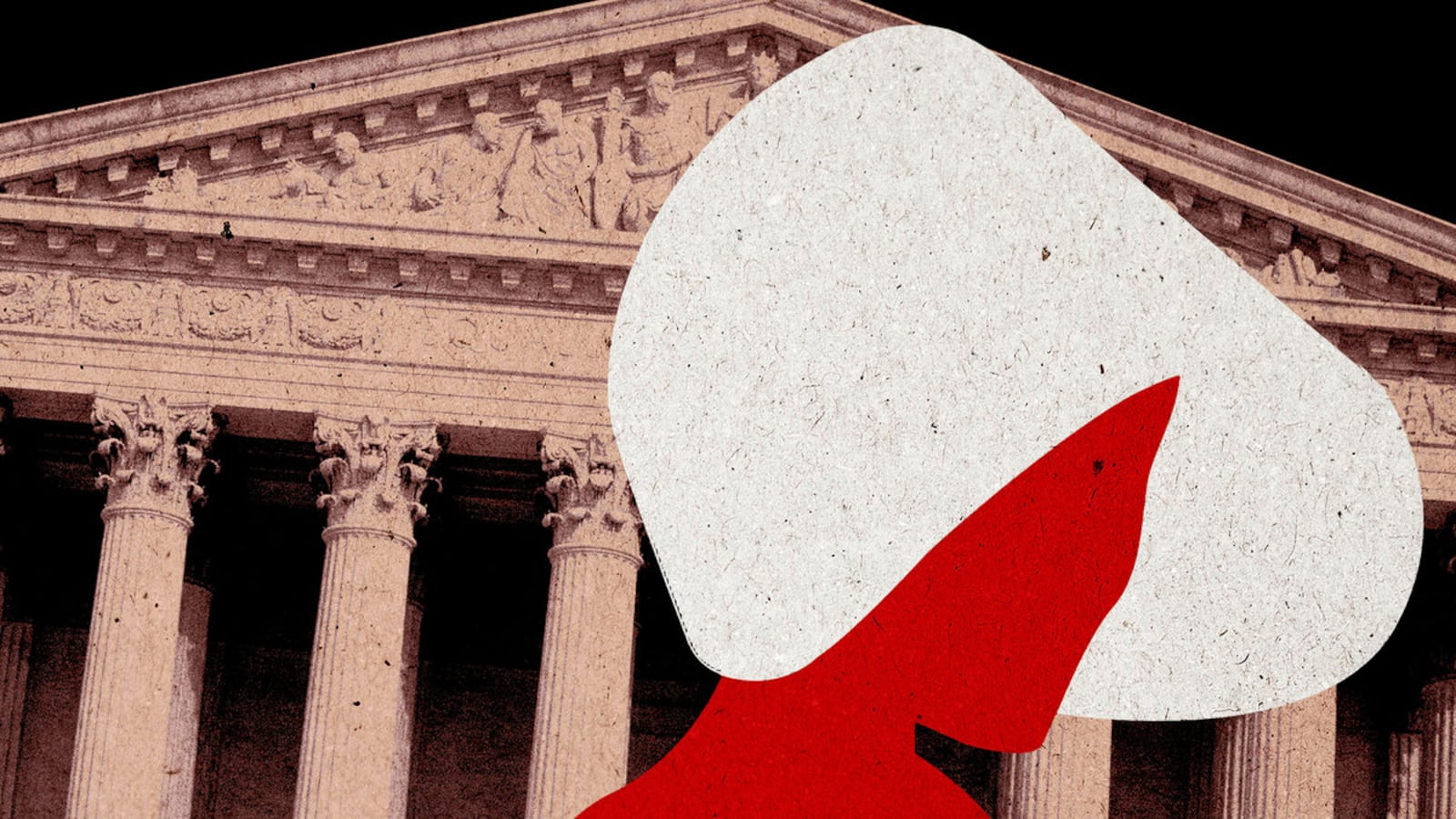Even before the Supreme Court’s oral arguments on Dobbs v. Jackson Women’s Health Organization kicked off this week, prominent media voices were preemptively undermining a future decision by declaring this Supreme Court to be “radical.”
But let’s examine the charge of radicalism on its merits.
First, it’s important to reiterate that overturning Roe—which seems increasingly likely (you heard it here first)—would not ban abortion, but would, instead, send the issue back to states to decide via the democratic process. Despite what you might have read, this is hardly a radical idea.
Indeed, it seems to me that a more radical idea would be nine men in robes unilaterally imposing a top-down law, under the guise of a purely fictional “right to privacy.” This is to say that Roe was—and remains—radical.
As I noted in June, anyone alive in 1868 would have been stunned to learn the 14th Amendment implicitly legalized abortion, which became criminalized (except in instances where the life of the mother was at stake) around 1880. For over a hundred years, the amendment did nothing to legalize abortion.
Even some prominent liberals who supported abortion rights conceded Roe is a flawed ruling. Ruth Bader Ginsburg famously agreed that the precedent was reasoned badly. (The subsequent Planned Parenthood v. Casey decision in 1992 similarly reverse-engineered a new rationale not found in the Constitution to justify abortions.)
Putting the substance of this radical ruling aside, the practical effect of Roe has been to radicalize our politics. Had the legislative process not been prematurely aborted by the Supreme Court in 1973, it’s possible that we might have arrived at some sort of consensus regarding abortion rights by now. But Roe short-circuited that process. It also nationalized and heightened the stakes of presidential elections (not to mention Supreme Court hearings). As a result, American politics has become more nasty and apocalyptic. Every election is the most important in history.
This is not just pablum politicians spout around election time. The stakes are high, and this is a reality that covers a multitude of sins. For example, it’s entirely possible—maybe even likely—that Donald Trump would not have been elected president without the stakes raised by Roe. This is because Mitch McConnell held the seat open, guaranteeing that the winner of the 2016 presidential election would get at least one SCOTUS pick. In so doing, McConnell made it dramatically easier for social conservatives (who, for decades, had been told Supreme Court nominations were the alpha and omega) to hold their nose and rationalize pulling the lever for Trump.
A Supreme Court reversal of Roe this coming summer would only reinforce the sagaciousness of this devil’s bargain (and, in so doing, potentially help lay the runway for a potential Trump 2024 takeoff). But don’t let that stop you from supporting it. Remember, Roe arguably gave us Trump to begin with.
Of course, the court could find some way to uphold the Mississippi law without outrightly or immediately reversing the Roe-Casey framework. This more moderate decision would still be called “radical.” In fact, earlier this week, Speaker of the House Nancy Pelosi referred to “Mississippi’s radical abortion ban…”
But is 15 weeks a radical demarcation? As Chief Justice John Roberts noted during Wednesday’s oral argument, the 15-week ban is “not a dramatic departure from viability [the point at which a baby could survive outside the womb]. It is the standard that the vast majority of other countries have.” He went on to note that “When you get to the viability standard, [America currently shares] that standard with the People’s Republic of China and North Korea.”
(It’s impossible to dismiss this point, but it is fair to quibble with it. According to PolitiFact, “Abortion laws are subject to interpretation,” but “About 13 European nations have time limits that are clearly shorter than Mississippi’s 15 weeks.” Regardless, Chief Justice Roberts’ point is valid: The Mississippi law is more mainstream in the context of secular Europe.)
It is the act of abortion after 15 weeks that strikes me as radical. According to the Mayo Clinic, “Fifteen weeks into your pregnancy, or 13 weeks after conception, your baby is growing rapidly. Bone development continues and will soon become visible on ultrasound images. Your baby’s scalp hair pattern also is forming.” Whether you want to call it infanticide or simply “terminating a pregnancy,” the idea of eliminating life via invasive surgery seems more extreme than the alternative (putting that child up for adoption).
I concede that overturning Roe could be considered “radical” in the sense that it would be a big change. And, yes, the more conservative (in the sense of being “adverse to change”) decision would be to simply defer to past precedent. But do we want to stick with bad policies that were wrongly decided based on... tradition? Do we want to stick with bad policies that were wrongly decided because some people have come to rely on them?
The good news is, there is precedent for breaking precedent. I am persuaded by what Justice Samuel Alito said on Wednesday: “There was a lot of reliance on Plessy [v. Ferguson]. The South built up a whole society based on the idea of white supremacy. So there was a lot of reliance. It was improper reliance. It was reliance on an egregiously wrong understanding of what equal protection means.”
Alito’s comparison of a Supreme Court ruling that upheld the “separate but equal” doctrine to Roe is sure to drive progressives crazy, but anti-abortion activists have long looked to abolitionist heroes like William Wilberforce—the British politician who led the movement to abolish the slave trade—for inspiration while fighting to establish the rights of the exploited and the vulnerable.
So maybe we are radicals, after all?







